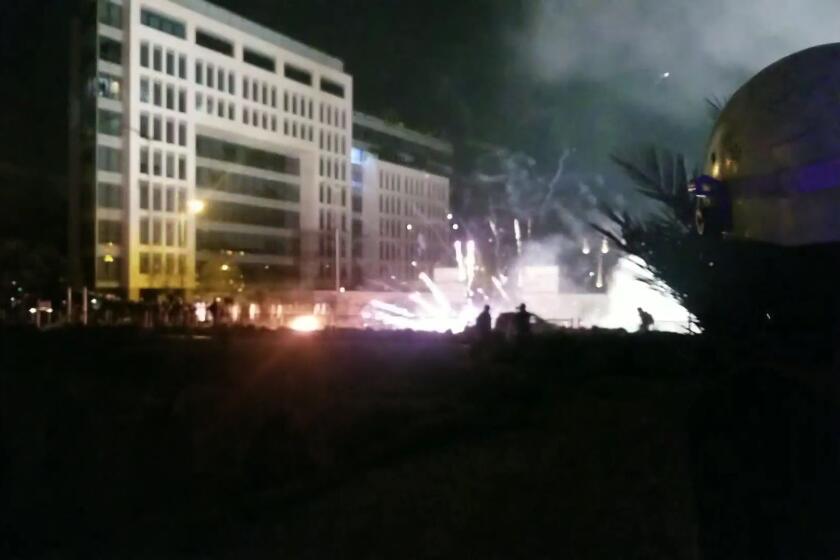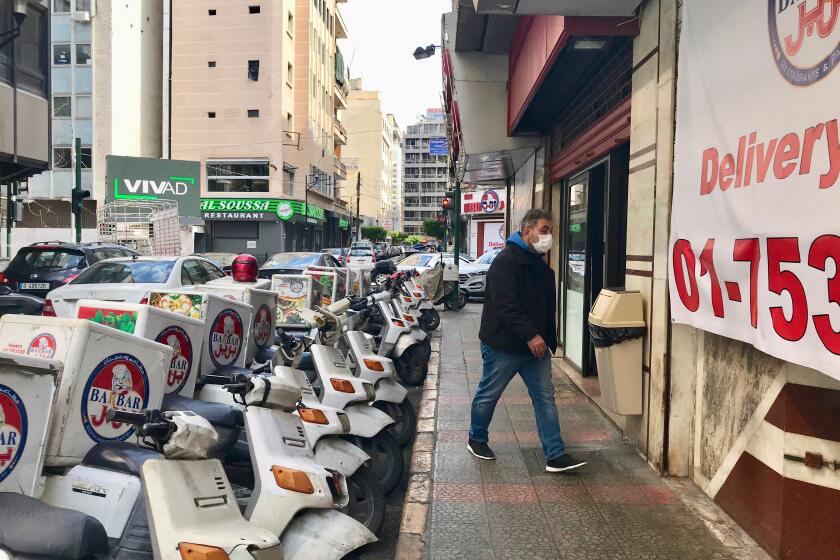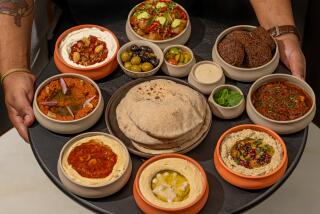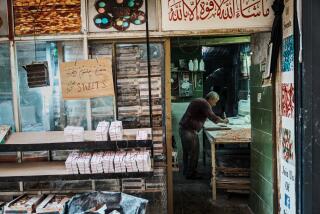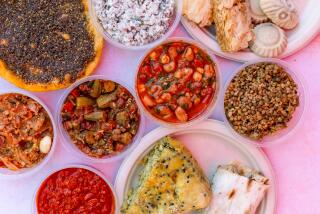Where’s the beef? Lebanon’s currency crash puts desperation on the menu
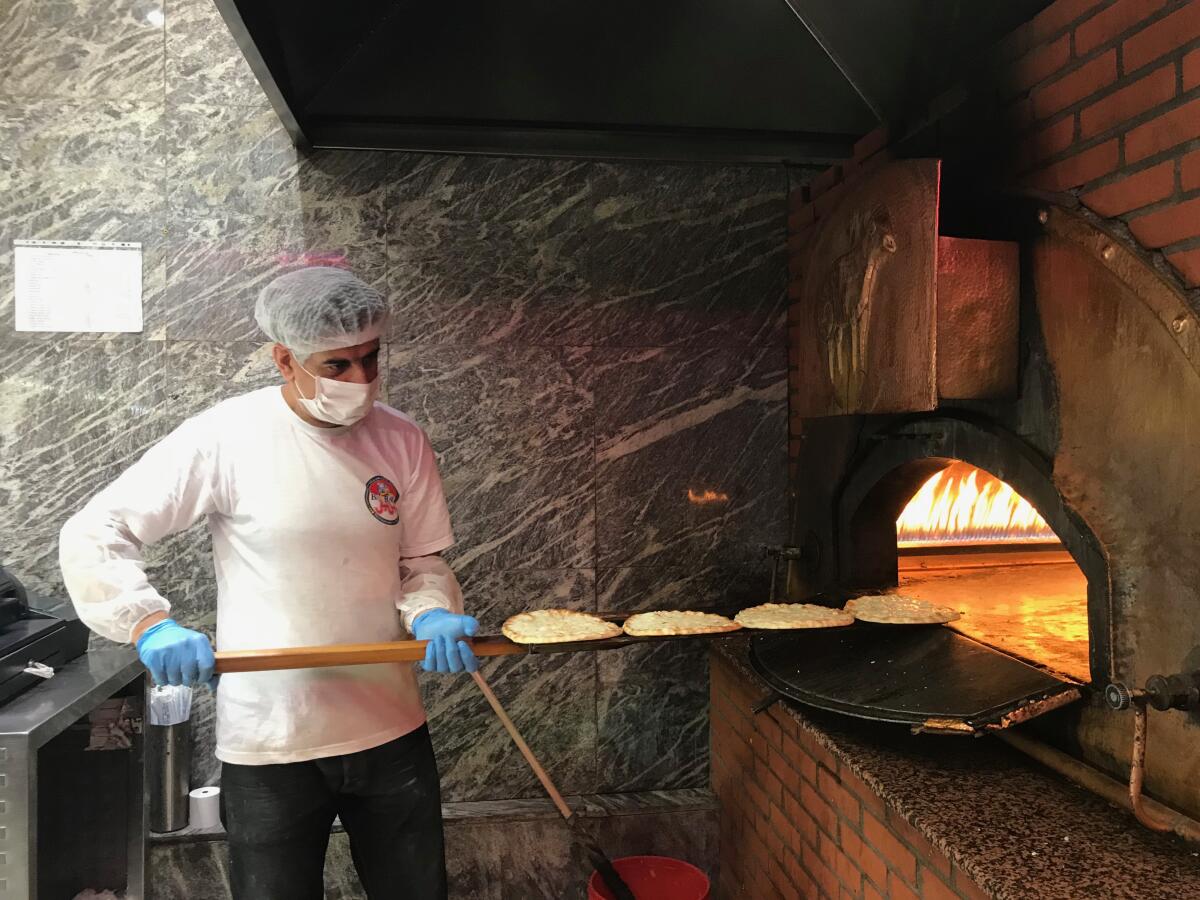
For the Lebanese, red meat is king. They eat it in the morning, in delicately spiced lahm bi ajeen pastries with ground beef. They have it on the run, carved from gargantuan spits marbled with fat for their shawarma, or in leisurely Sunday lunches replete with skewers of barbecued lamb. They even take it raw, be it in their version of steak tartare or glistening chunks of sawdah, or sliced uncooked liver.
But it’s less on offer these days, said Hassan Bdeir, a 48-year-old trader polishing off his breakfast in a neighborhood cafe.
“Usually I’d have meat pastries. Now? No way,” he said, pointing to a half-finished bowl of ful, stewed fava beans with a side of vegetables.
“This is what we eat now. And even this, not just anyone can afford it.”
Bdeir’s meatless meal was another example of the fraught calculus that has become daily life for most Lebanese as they face a crumbling economy, dwindling savings and a political class seemingly intent on stopping reform and beggaring the country.
That economic implosion, which began in September but was accelerated by the coronavirus crisis, has seen the national currency lose almost 85% of its value against the dollar, despite an official peg that kept the Lebanese lira at 1,500 against the greenback for more than two decades. It now stands at almost 10,000, spurring a cataclysmic rise in prices for a country that imports 80% of its food.
The sticker shock has forced many here to cut back, and turned basic goods into luxuries few can afford. That includes red meat: Before the crisis, two pounds of it cost roughly $9, or 14,000 Lebanese lira. Today the same amount costs roughly 65,000 lira — the equivalent of more than $43 at the official exchange rate.
That has spurred a rapid adjustment. Many restaurants have canceled red meat options on the menu; others have modified signature dishes to use chicken or vegetarian substitutes. Even the army eschews meat in the food it serves to soldiers, Lebanon’s ministry of defense said this week.
“People come in, buy five kilos [11 pounds]. That was the standard,” said Ahmad Mallaah, 42, who co-manages his family’s butcher shop in Beirut’s Msaytbeh neighborhood. “Now they barely take one, and even that they’re dividing over five meals.”
Demand has plunged to the point, he said, that he doesn’t bother stocking up. In his window display were four sheep carcasses suspended from hooks, but two of his three fridges stood empty.
“What you see in there now costs 5 million Lebanese lira,” he said — more than $3,000 at the official exchange rate.
“I’m literally seeing women crying in front of the shop window when they see the prices. Some come in and ask for less than a quarter pound of meat for the week. I give them a bit more out of charity.”
Mallaah isn’t alone. In recent weeks, said Maarouf Bakdash, head of the butchers’ and livestock traders’ union, almost three-quarters of the country’s butchers have stopped working altogether. Imports of meat, which in 2018 reached approximately $155 million, according to U.N. data, have been halved. There are still three to four more shipments of livestock arriving this month; without government guarantees of assistance, they will be the last.
“Even if we butchered the ones we have, who has enough money to buy?” Bakdash said.
In the four months since widespread anti-government protests erupted, the Lebanese have danced and cheered in spasms of nationalistic pride.
That has become an existential question in recent days, with the Lebanese contemplating not only the collapse of their country but also the end of the hallowed status it enjoyed in the Middle East.
Despite decades of regional turmoil, a vicious civil war and the effects of nearby proxy conflicts playing out on its soil, Lebanon, a tiny nation of some 5.4 million people, has long been held up as an example of resilience. There were daily power cuts, and the government was almost ludicrously corrupt, but the Lebanese had a joie de vivre, the cliche went, with a lifestyle befitting the country’s status as a Mediterranean playground.
One reason for that was the fixed exchange rate with the dollar, which authorities maintained using inflows of U.S. currency from tourism, foreign aid and remittances, not to mention loans that made Lebanon the third-most indebted country in the world. Those revenue streams dried up as upheaval continued in neighboring Syria; that pushed officials to engage in what they called “financial engineering.” They offered stratospheric interest rates to attract depositors’ dollars, which in turn required more deposits to pay off the gains. Critics described it as a giant Ponzi scheme.
Matters came to a head last September. Facing a shortage of dollars, banks began to limit withdrawals even as protests bloomed across the country and toppled the government.
Though a new Cabinet took over promising reform, the crisis has deepened as the political class continues to bicker. Inflation, said Steve Hanke, an expert in troubled currencies at Johns Hopkins University, has now reached a monthly rate of 135%, with the lira on the way to hyper-inflating. Demonstrations, which had stopped because of COVID-19 lockdowns, have now returned in increasing force.
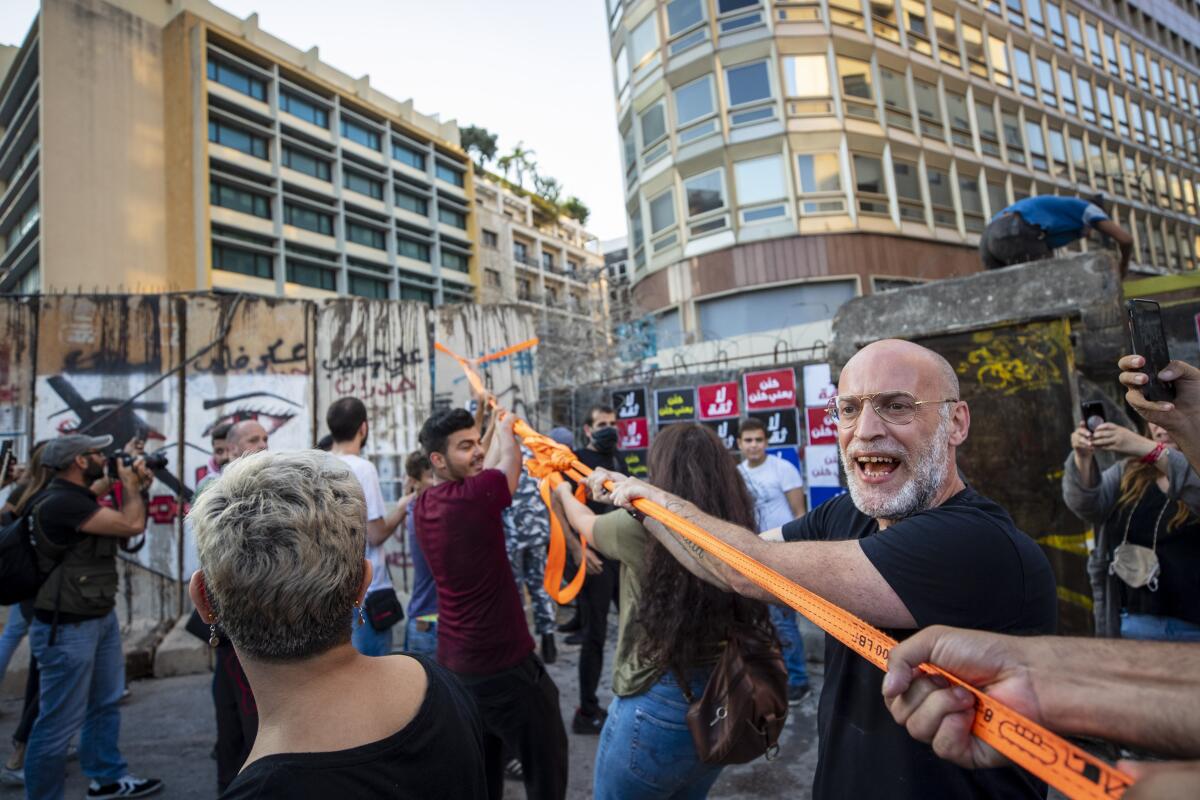
Still, officials have been unable to agree on the extent of the damage, let alone achieve the consensus needed to unlock $20 billion in funds from the International Monetary Fund. But it seems clear that any solution will mean austerity, turning Lebanon from a land of plenty into one of privation.
In many ways, that transformation has already begun, making Lebanon’s contrasts more jarring. Lines form outside bakeries even as crowds swarm a local Louis Vuitton store selling its merchandise at a lower exchange rate to the dollar. Porsches, Maseratis and Ferraris line the street before a fancy hilltop restaurant, with parking valets navigating past ever-more-desperate panhandlers. Hunger is a growing problem.
Meat is an example of what may soon be an impossible luxury. Though to many foreign palates Lebanese cuisine can seem a vegetarian extravaganza, its meat dishes occupy pride of place in the Middle East, a marker of the karam, or generosity, to be shown a guest.
With so much of the country’s food supply imported, even non-meat staples have also been affected. The cost of making humbler dishes — like those involving lentils or green beans — has increased by more than half, according to a report released in May by Triangle, a Lebanese think tank.
You can deal with militias and armies, the owners of Beirut’s famous Barbar restaurant say, but you can’t make friends with the coronavirus.
Some political leaders and other voices insist that the crisis presents an opportunity for Lebanon to take charge of its own food supply and develop its agricultural industry. But farmers have been affected by the same financial woes affecting the rest of the country, said Imad Bissat, an agricultural expert and farm owner.
“You want to buy seeds; sellers only take dollars. You want fertilizers and chemicals for the crops; you can’t get them on credit but have to pay up front,” Bissat said, adding that he didn’t have enough funds to plant all the fields on his farm.
Even if conditions were better, he said, the country would still not be able to fulfill all its needs.
“Lebanon is self-sufficient in fruits and legumes, but not in dairy, meat and grains. Plant all of Lebanon with wheat and you still won’t achieve self-sufficiency,” he said.
For many, the only solution seems to be to leave — if they can.
“I came back from Germany 30 years ago because I love my country,” said Samir Fadhel, a 66-year-old cafe owner. “But now I hate it. It’s time to go.”
More to Read
Start your day right
Sign up for Essential California for news, features and recommendations from the L.A. Times and beyond in your inbox six days a week.
You may occasionally receive promotional content from the Los Angeles Times.
